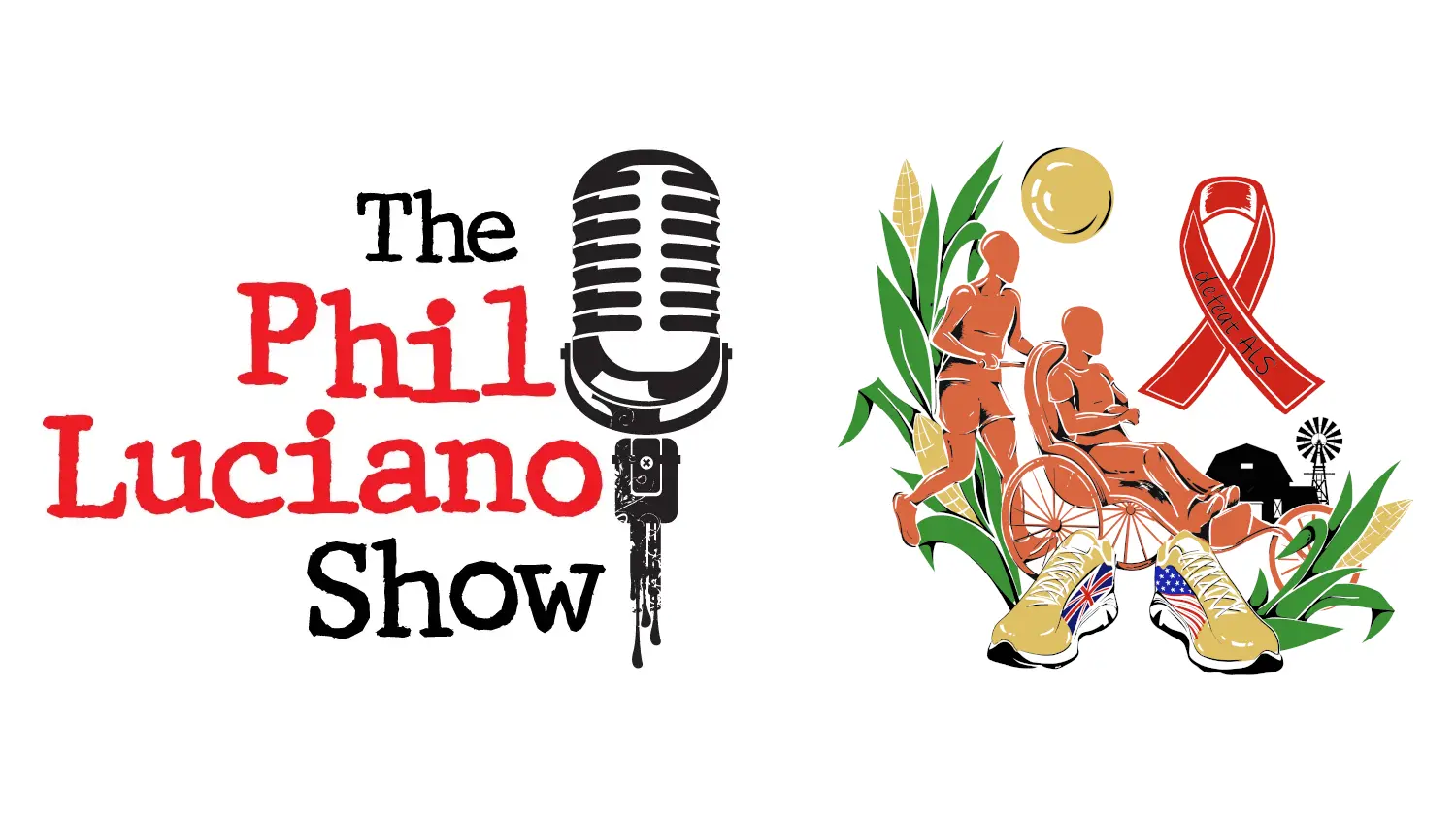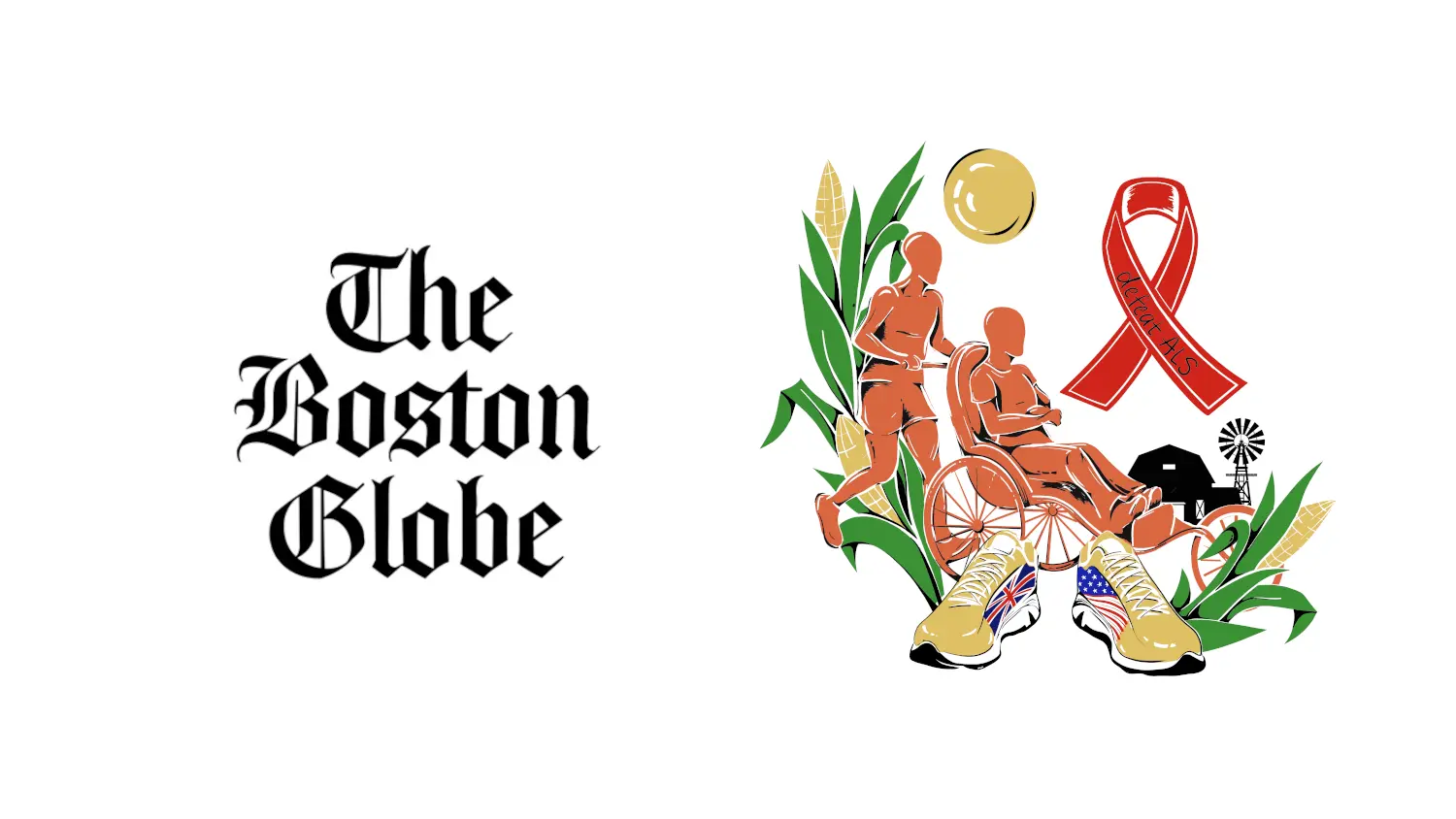Our story
Life really does turn on a dime… on December 4th, 2023 we received a diagnosis that we suspected and feared – Jeff has ALS. For those unfamiliar, ALS is a progressive neuro-degenerative disease. It can rob you of your mobility, your ability to speak and eat, and eventually your ability to breathe. There is no cure. Only 20% of people diagnosed with ALS are still alive 3 years after symptom onset. Jeff's symptoms began almost 3.5 years ago – he's already beating the odds! Although we are devastated, we draw strength from our family and friends, and of course, our faith. Jeff is such a strong witness to the goodness of God. He immediately started making plans for how he could use his circumstance for the better, to help others, and to be an example of a life well-lived.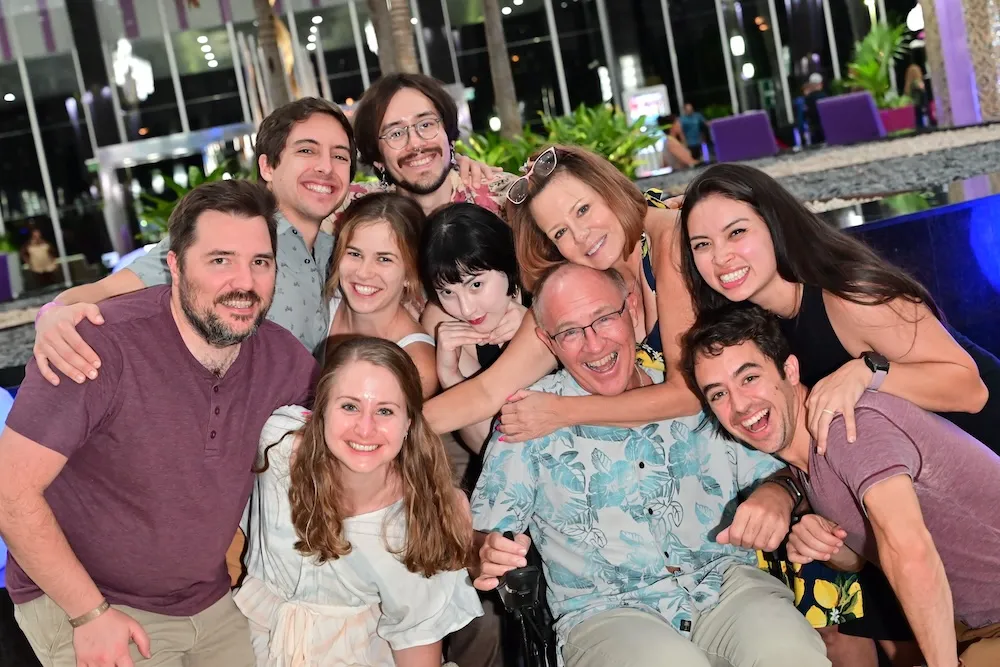
Before his diagnosis, Jeff was an avid distance runner (he had run 10 marathons and one Grand Canyon Rim-to-Rim). Jeff’s sons, Matt & Mike, followed in Jeff’s footsteps as they picked up running at a young age.
Matt & Mike had recently run the 2023 Boston Marathon, and after receiving Jeff’s diagnosis, they wanted to do something special for their dad – on Father’s Day of 2024 they told Jeff they wanted to run Boston again, but this time with Jeff riding along in a racing pushchair. However, getting accepted into Boston is no easy task.
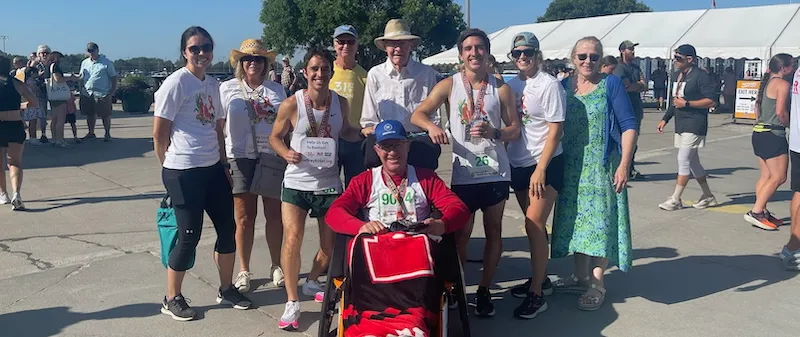
Our mission
We started the Jeffrey F. Birkel Foundation to fundraise for the ALS Association, ALS United, and ALS research. Back in 2005, Jeff ran the Boston Marathon and helped raise funds for MPD research, a rare disease with which a dear friend and coworker had been diagnosed. Similar to MPD, ALS is also rare and underfunded. Remembering his past Boston experience and inspired by the gift of his sons pushing him in a racing wheelchair, Jeff wanted to turn this into an opportunity to raise awareness funds for ALS treatments and eventual cures.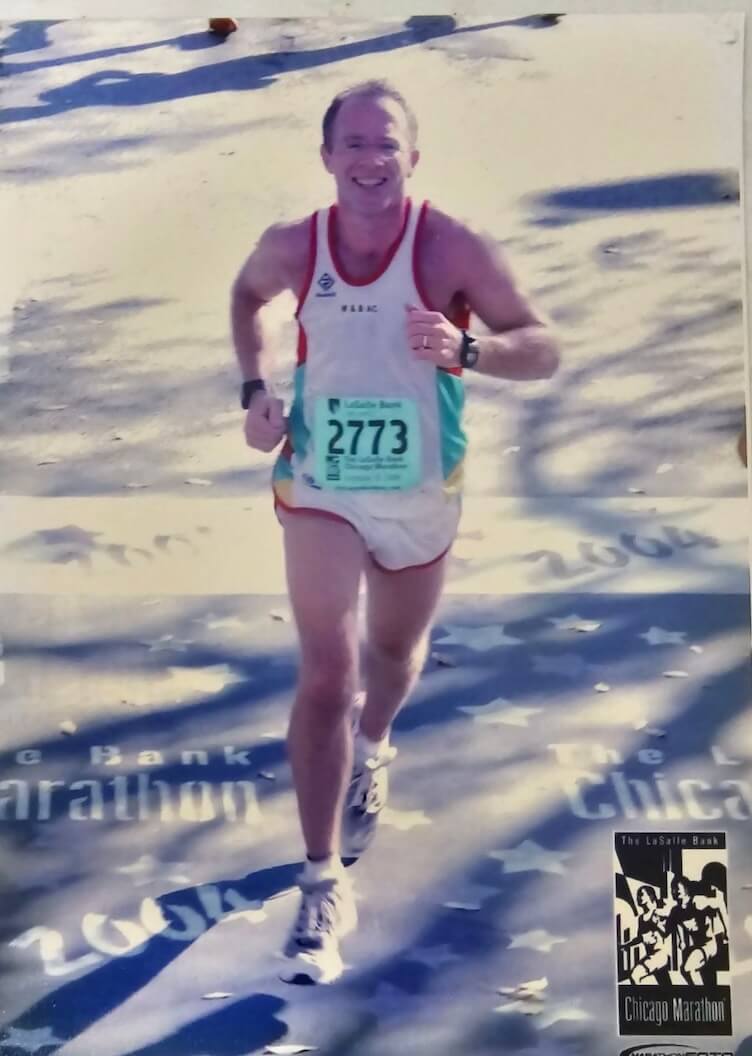

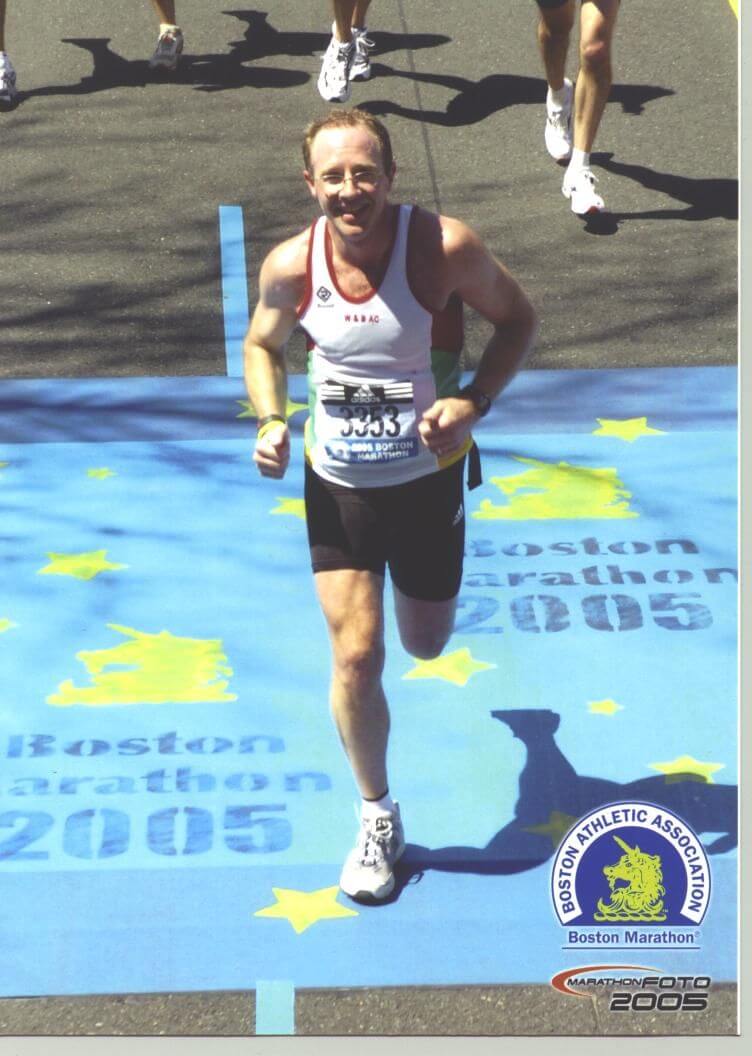
10 marathons
2026 Rome Marathon
We are happy to announce ALS United Illinois has awarded Jeff and a team of four pushers a relay entry in the Rome Marathon on March 22nd! Once again we'd like to use this opportunity to continue to fundraise in support of those living with ALS and those conducting research to find a cure. Many of those we know have already given generously to this cause — between the 2025 Boston Marathon, the 2025 Peoria Walk For ALS, and the 2025 Chicago Marathon we were able to raise $61,923! Any donation to this year's cause would be greatly appreciated as well. Jeff is really digging deep into his energy reserves to try and pull off his 14th marathon (his 4th with ALS). He is so grateful for not only your financial support, but also your emotional and spiritual support. He's trying his hardest to bring some good out of what otherwise is a tough situation. It is activities like this one that helps keep him going and we'd love for as many as possible to be a part of that in any way no matter how small. Thank you!2025 Boston Marathon
We’re proud to say that the Birkels successfully qualified for and ran the 2025 Boston Marathon! What a journey! See the timeline in the Updates section, below. In short, Jeff, Matt, & Mike were able to run a charity-qualifying time at the 2024 Nebraska State Fair Marathon, but that didn’t guarantee them an entry—they still needed to interview for a charity bib, get accepted, and meet fundraising requirements. And after all that, there’s still a limited number of pushchair (“Duo Team”) spots available at the Boston Marathon, and if too many apply, the BAA allocates them at random.
All the pieces fell into place as we passed the ALS Association’s interview, got selected by the BAA, and were able to exceed our original fundraising goal of $20,000, thanks to all of you! Check out our YouTube Shorts for videos from the big day. To quote Jeff,
I feel beyond blest, thankful, and grateful. The whole thing turned out better than I ever imagined. I thank all the people that helped make this happen. All of our donors including Bank of America, the folks at the Nebraska State Fair Boston-qualifying Marathon, the ALS Association and the Boston Athletic Association for the Duo entry, Adaptive Star for rush manufacturing our pushchair, our attorney Brennon Malcom in Cozad Nebraska for creating our 501(c)(3) pro bono, my stepson for creating and maintaining our website, and of course my boys, their wives, and my wife. This truly was a family effort that required significant sacrifice and commitment, but one given freely from the heart. We thank God for keeping our family all safe, healthy, and strong throughout this journey, and for connecting us with all these wonderful people that helped make this happen. I am and always will be grateful. I am so blessed. These are memories I will cherish forever. Thank you all!
While the 2025 Boston Marathon is behind us, we’re not stopping there. We plan to continue running and raising awareness and funds for ALS! All donations go forward to ALS care, treatments, and research.
Updates
You can also follow via6/14/25
The Birkels are back on the pavement! This time, it was Matt pushing Jeff in the 4-mile SC415 (formerly Steamboat Classic) in the Birkels’ hometown of Peoria, IL. The goal was to push Jeff to a new personal record in the 4-mile, and they successfully did it with an official time of 25:06! Jeff’s previous best time was 25:18. Fun fact: it was 1 year ago this weekend that Mike & Matt told Jeff they wanted to get him back to Boston. What a year it’s been!
6/10/25
Jeff was interviewed on The Phil Luciano Show on Peoria’s WMBD 100.3 FM radio station in anticipation of the upcoming SC415 (formerly Steamboat Classic) 4-mile race on Saturday.
5/25/25
The Birkels made it on the front page of the Peoria Journal Star Sunday newspaper. You can also read the story online at pjstar.com.
5/21/25
Jeff and the boys were invited onto the ALS Matters podcast. They were hosted by Cory Mosley. Thanks to the ALS Association for supporting this podcast! Watch on YouTube
5/18/25
Jeff and Mike were asked to come back to the WCCO CBS Minneapolis studio for a live post-race interview. Watch on YouTube
Social Media






Media
- 5/21/25

ALS Matters: Episode 6 - Running the Boston Marathon as a Family
- 5/18/25
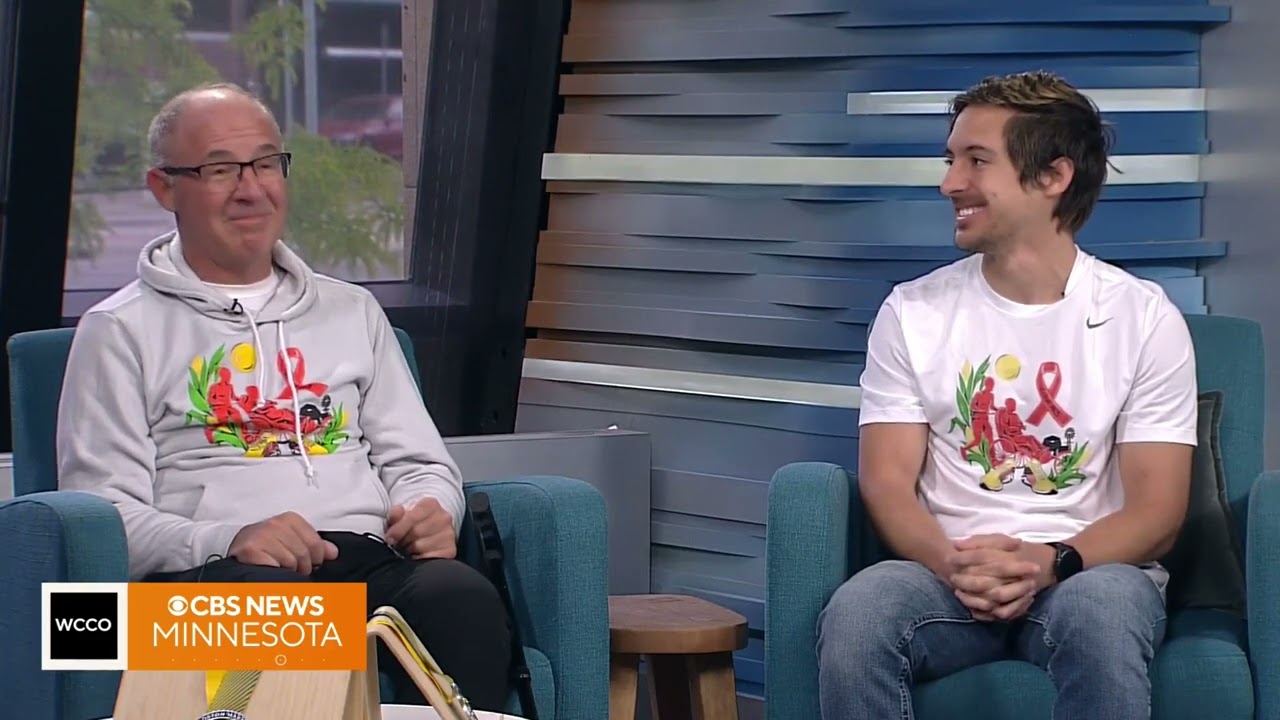
WCCO News: These Minnesota brothers helped their dad with ALS run the Boston Marathon, here's how
What is ALS?
Amyotrophic lateral sclerosis, also known as motor neuron disease (MND) or Lou Gehrig's disease in the United States, is a rare, terminal neurodegenerative disorder that results in the progressive loss of both upper and lower motor neurons that normally control voluntary muscle contraction. ALS often presents in its early stages with gradual muscle stiffness, twitches, weakness, and wasting. Motor neuron loss typically continues until the abilities to eat, speak, move, and, lastly, breathe are all lost. While only 15% of people with ALS also fully develop frontotemporal dementia, an estimated 50% face at least some minor difficulties with thinking and behavior.
There is no known cure for ALS. The goal of treatment is to slow the disease progression, and improve symptoms. The disease can affect people of any age, but usually starts around the age of 60. The average survival from onset to death is two to four years, though this can vary, and about 10% of those affected survive longer than ten years.

